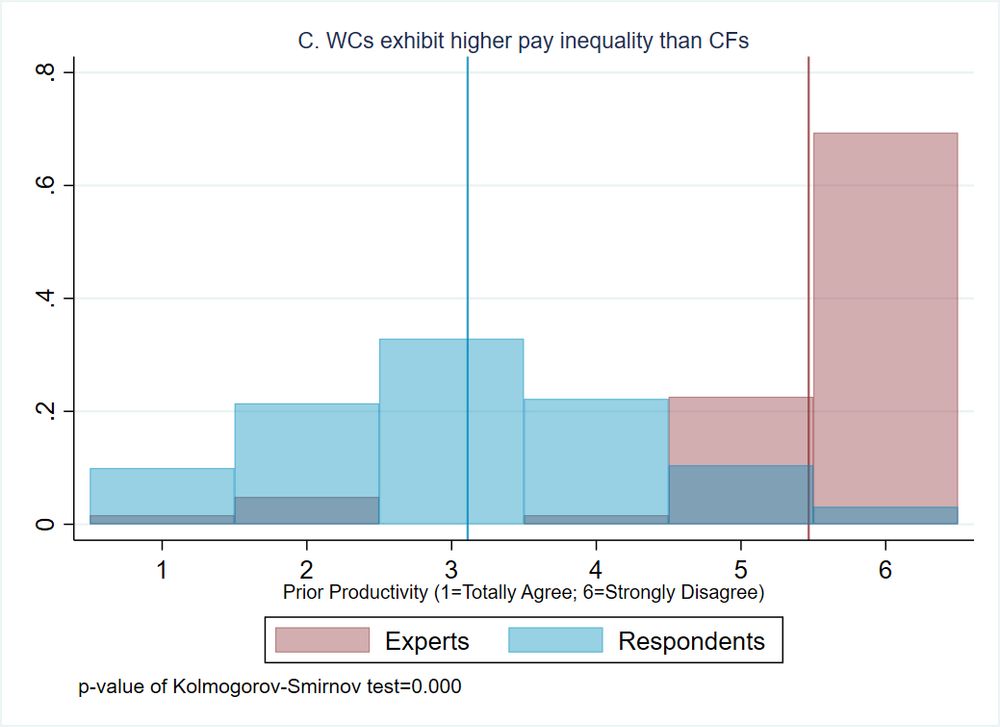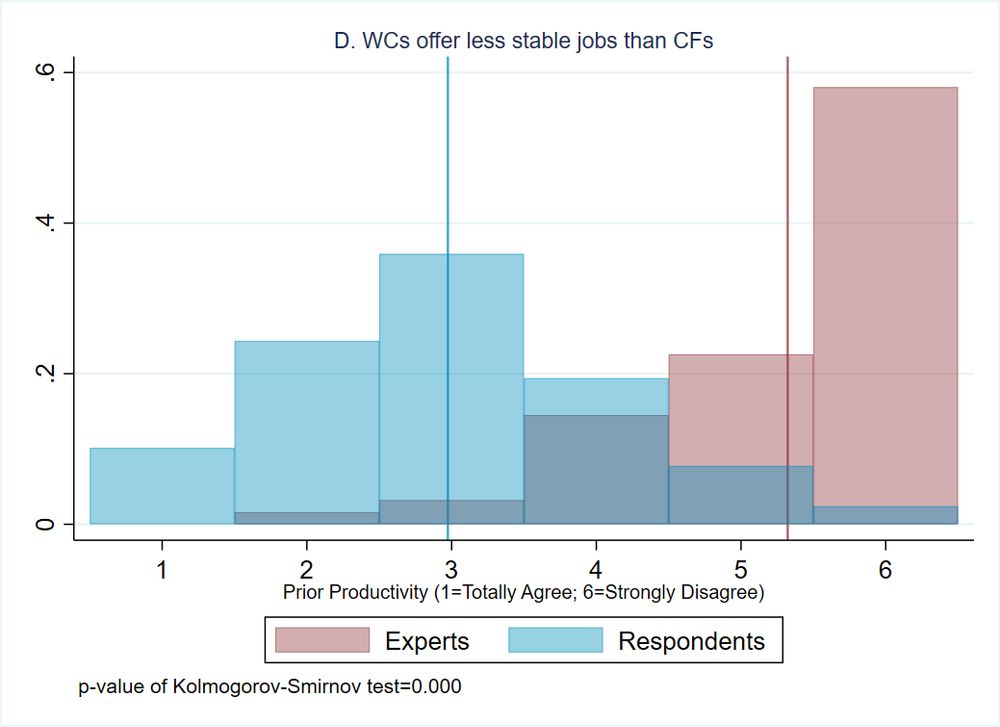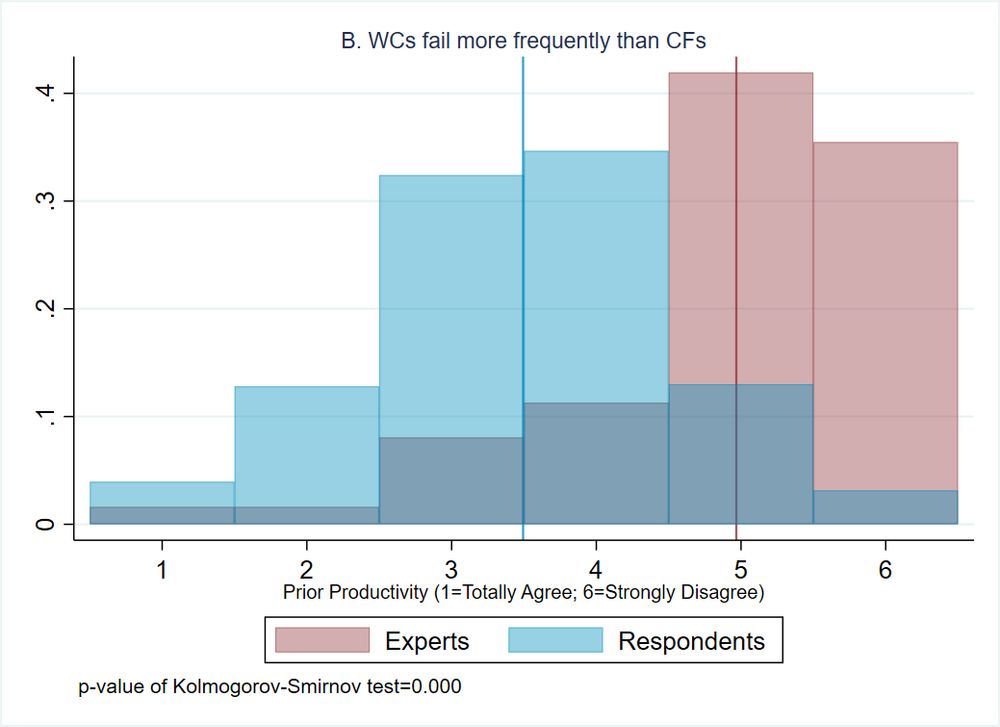
Affiliations: IZA, GLO, LUBS (UK) FCEA-UdelaR (Uruguay)
Researching on Labour, Organizations, Human Behaviour
https://sites.google.com/view/gabrielburdin
👉https://papers.ssrn.com/sol3/papers.cfm?abstract_id=5362985
👉https://papers.ssrn.com/sol3/papers.cfm?abstract_id=5362985
💡 Low-cost informational interventions can boost societal support for employee ownership.
But belief updating alone may not trigger career choices → deeper barriers remain.
💡 Low-cost informational interventions can boost societal support for employee ownership.
But belief updating alone may not trigger career choices → deeper barriers remain.
👉Demand effects: shift in policy preferences persists even in an obfuscated follow-up survey
👉(Non-preregistered) analysis of open-text responses with human coders + ChatGPT adjudication of disputes
👉Demand effects: shift in policy preferences persists even in an obfuscated follow-up survey
👉(Non-preregistered) analysis of open-text responses with human coders + ChatGPT adjudication of disputes
👉Worker ownership has the potential to improve firm and worker outcomes
👉Uptake is low not only due to wealth constraints, risk aversion or decision costs, as emphasized by traditional explanations, but also due to biased priors and negative narratives.
👉Worker ownership has the potential to improve firm and worker outcomes
👉Uptake is low not only due to wealth constraints, risk aversion or decision costs, as emphasized by traditional explanations, but also due to biased priors and negative narratives.
Control: “exploitation,” “low pay,” “instability.”
Treatment: “solidarity,” “cooperation,” “jobs.”
Information reduced negative first-order concerns about cooperatives and increased positive ones.

Control: “exploitation,” “low pay,” “instability.”
Treatment: “solidarity,” “cooperation,” “jobs.”
Information reduced negative first-order concerns about cooperatives and increased positive ones.
Result:
✅ Beliefs shifted (more optimistic)
✅ Policy support ↑ (“govt should support the creation of co-ops”)
❌ BUT career intentions did not change
5/
Result:
✅ Beliefs shifted (more optimistic)
✅ Policy support ↑ (“govt should support the creation of co-ops”)
❌ BUT career intentions did not change
5/
4/

4/
🔍 Priors: Young adults were much more pessimistic than international experts about the relative performance of worker cooperatives.
3/




🔍 Priors: Young adults were much more pessimistic than international experts about the relative performance of worker cooperatives.
3/
We asked: what do people believe about worker co-ops vs conventional firms (firm productivity, survival, inequality, employment stability)?
2/
We asked: what do people believe about worker co-ops vs conventional firms (firm productivity, survival, inequality, employment stability)?
2/

